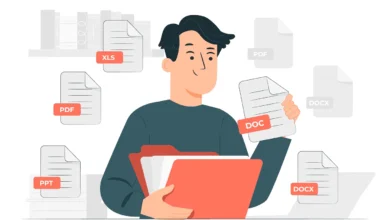What to do if your parents can’t help you pay the student

This section of Find provides advice to students whose parents are unfit or unintentional to help students pay for school. Anyhow, of the situation, some of the more common questions entered by Find come from students seeking help because their parents can not contribute to their education.
Find supports changes in civil legislation that would shift the burden to the scholars. Unfortunately, current civil law doesn’t give numerous options for students who want to go to the council but whose parents refuse to help. The school has been closed for a long time due to COVID-19, and many students have stopped listening to it. Students are not in a good mood after the school opens. So they want to commit suicide. So that they do not commit suicide. All parents need to be careful about-back to school necklace
Federal government policy on parental responsibility
The civil government and the seminaries consider it primarily the family’s responsibility to pay for school. They give fiscal backing only when the family is unfit to pay. However, that won’t make a difference, If a family just doesn’t want to pay. Parents have a lesser responsibility toward their children than the government or the seminaries.
The US Department of Education has published guidance to financial aid directors indicating that neither parent turn down to contribute to the pupil’s education nor parent reluctance to give information on the pupil aid operation or for verification is sufficient grounds for a reliance status override. This is true indeed if the parents don’t claim the pupil as a dependent for income duty purposes or the pupil demonstrates total tone adequacy.
In cases of divorce, the custodial parent is responsible for completing the FAFSA form. However, the finances of the custodial parent’s partner (the stepparent) must include. If the custodial parent remarries. This is easily stated in Section 475 (f) 3 of the Higher Education Act of 1965 (Public Law 89-329). The piece of Federal legislation that authorizes most Civil pupil aid programs.
Advice for students and parents
Fortunately, there are ways for parents to help with their child’s education without having to give financially. By furnishing a little clarity for both students and parents, both can end up on the same runner when it comes to getting help to pay for school from other sources.
Your first thing should be to encourage your parents to complete the financial aid forms. Indeed, if they don’t want to help you pay for council costs, by refusing to complete the forms they help you from getting aid on your own account (e.g., government subventions and pupil loans). After you have induced them to complete the forms, you can try getting them to help you pay for council. And children need some entertainment as well as reading. So that they can pay attention to their studies in a good way. Every parent needs to entertain their children. So, you can see some entertainment.
What to do if your parents refuse to complete financial aid forms
Remind your parents that submitting the forms doesn’t obligate them to give support. But that if they refuse to file the FAFSA, you won’t eligible for any need-ground aid on your own. College fiscal aid directors are permitted to offer dependent scholars an unsubsidized Stafford loan without taking the parents to file a FAFSA, handed that the financial aid director verifies that the parents have ended fiscal support and won’t file the FAFSA. The unsubsidized Stafford loan isn’t grounded on fiscal need and is a loan. But at least it’s a commodity to help you pay for school.
But if you can move your parents to file the FAFSA, you might qualify for need-grounded aid, similar to the subsidized Stafford loan and the Well Grant, as well as institutional aid. By not filing the FAFSA, they help you from getting any of this aid.
Read more: SBI versus IBPS PO




